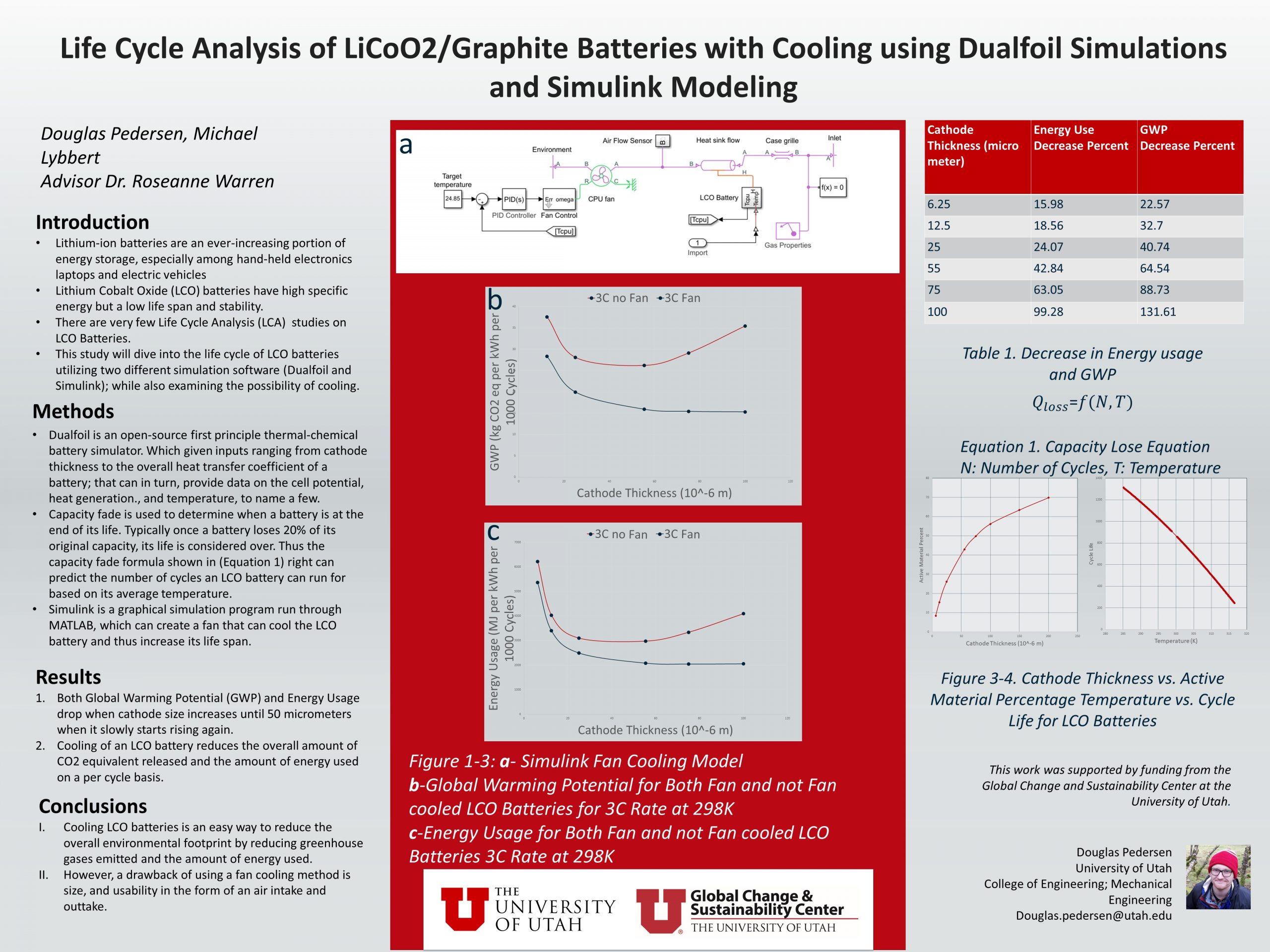Life Cycle Analysis of LiCoO2/Graphite Batteries with Cooling using Dualfoil Simulations and Simulink Modeling
-Douglas Pedersen, Michael Lybbert, Roseanne Warren
[bs_collapse id=”collapse_af4d-a649″]
[bs_citem title=”Bio” id=”citem_7461-f7b1″ parent=”collapse_af4d-a649″]
After four years in the United States Marine Corps, I obtained my Bachelor’s degrees in Mathematics and Mechanical Engineering at Michigan Technological University in the frigid upper peninsula. While at Michigan Tech, I discovered a love of sustainable energy systems and researched thermal chemical batteries for electric vehicles under the guidance of Dr. Sajjad Bigham. At the University of Utah, I`m currently pursuing a Master`s degree in Mechanical Engineering under Dr. Roseanne Warren. My research focuses on life cycle assessment modeling of batteries.
[/bs_citem]
[bs_citem title=”Abstract” id=”citem_a882-7242″ parent=”collapse_af4d-a649″]
Life cycle analysis (LCA) is a relatively recent tool used to quantify the environmental impacts of various products and processes. Within an LCA, data is generated or collected for each component and process from both production and use. This data in turn generates an impact assessment which estimates the effects of the product on the world’s ecosystems, human health, and the depletion of natural resources. In this study, the life cycle environmental impacts of rarely analyzed lithium cobalt oxide (LCO) batteries are studied. This study will combine the open-source first-principle electrochemical modeling software Dualfoil with a Simulink cooling model. With a comprehensive LCA of LCO batteries, the negative ramifications of this commonly used cobalt containing batteries can be discovered; these batteries are in most hand-held electronics and computers.
[/bs_citem]
[/bs_collapse]

